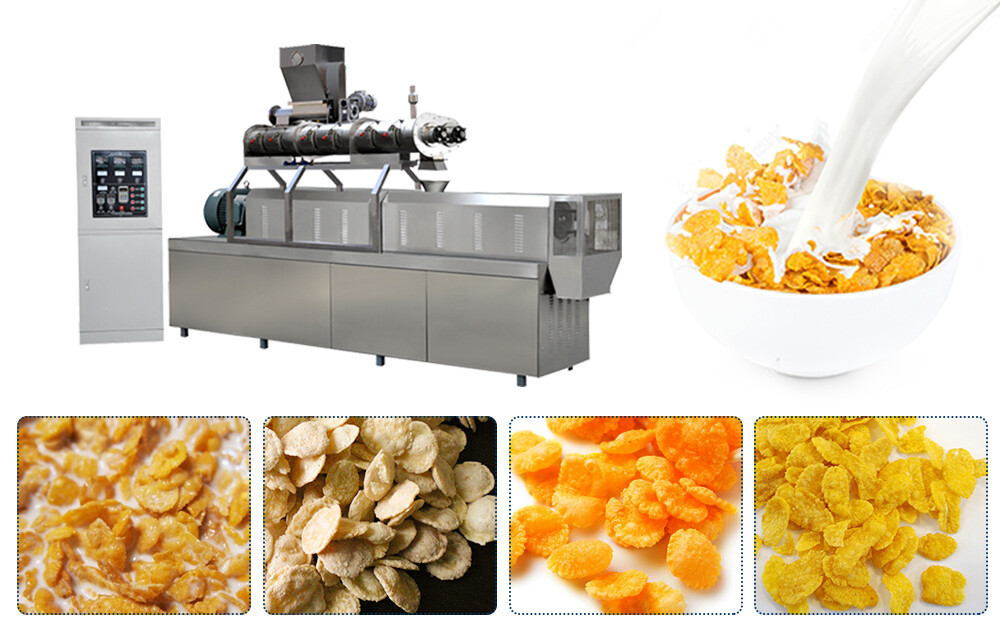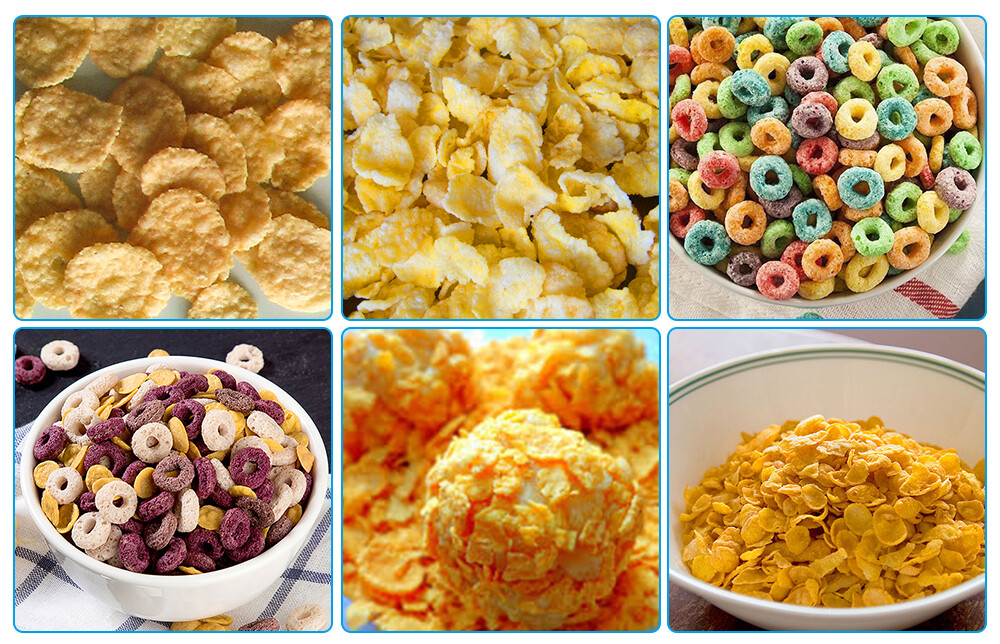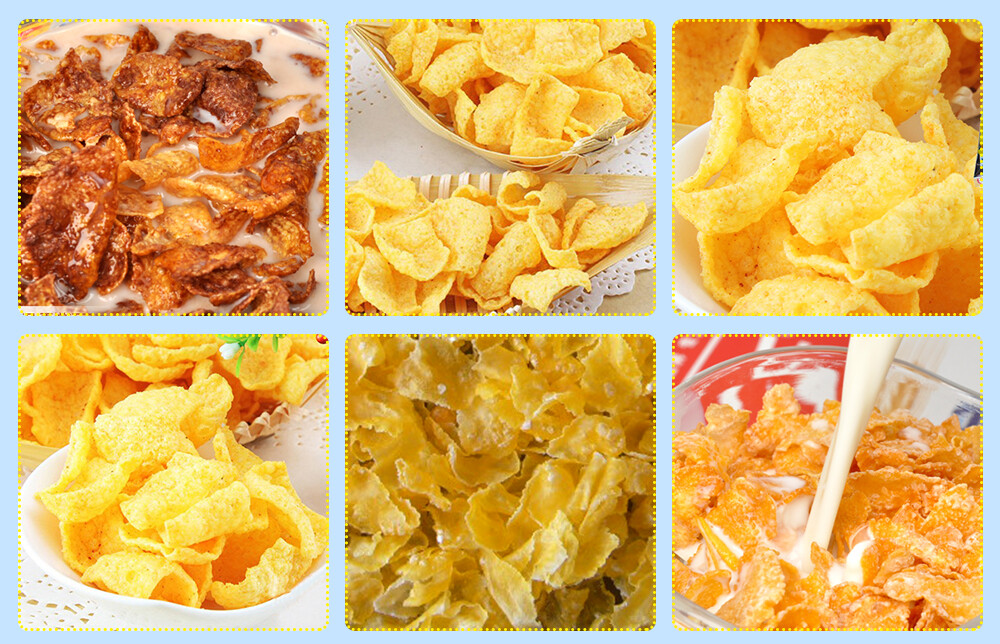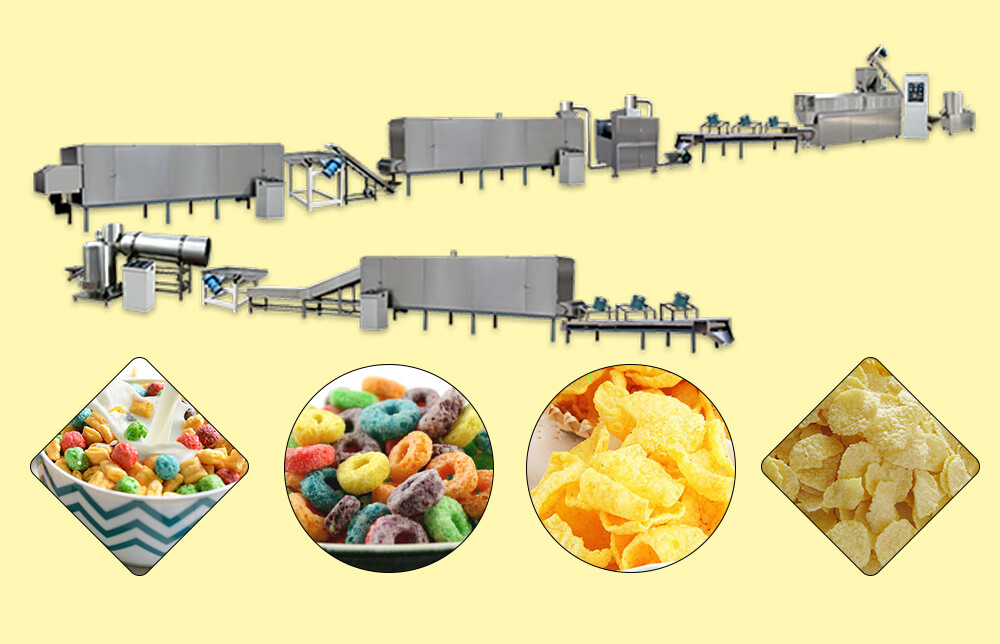The Ultimate Guide to Breakfast Cereal Companies in 2024
Introduction
Breakfast Cereal Companies play a pivotal role in the modern diet, offering a convenient and nutritious start to the day for millions around the world. The breakfast cereal industry has seen significant changes over the years, driven by evolving consumer preferences, technological advancements, and a growing emphasis on health and sustainability.
In 2024, the breakfast cereal market is more dynamic than ever. Companies are innovating with new flavors, healthier ingredients, and sustainable practices to meet the demands of health-conscious consumers. Understanding these trends and the key players in the industry is crucial for anyone interested in the world of breakfast cereals.
This guide will provide an in-depth look at the history, leading companies, product innovations, marketing strategies, and future outlook of the breakfast cereal industry. Whether you are a food industry professional, a marketer, or a consumer, this comprehensive overview will equip you with valuable insights into the current state and future potential of breakfast cereal companies.

Innovations and Technology in Cereal Production
In 2024, breakfast cereal companies are at the forefront of technological advancements, utilizing state-of-the-art food machinery to enhance production efficiency and product quality. These innovations are not only revolutionizing how cereals are made but also aligning with the evolving demands of consumers for healthier and more sustainable products.
Trends in Cereal Ingredients and Flavors
Modern breakfast cereal companies are experimenting with a variety of ingredients and flavors to cater to diverse consumer preferences. The integration of high-protein grains, gluten-free options, and natural sweeteners is becoming more common. Advanced food processing machinery, such as precision blenders and mixers, ensure consistent ingredient distribution and flavor profiles across large batches.
Health and Nutrition Innovations
Health-conscious consumers are driving breakfast cereal companies to innovate continuously. High-speed extruders and puffing machines are used to create cereals that retain their nutritional value while offering desirable textures. Additionally, these machines enable the incorporation of functional ingredients like probiotics, omega-3 fatty acids, and fiber, enhancing the nutritional profile of breakfast cereals.
Sustainability Initiatives in Cereal Production
Sustainability is a critical focus for breakfast cereal companies in 2024. Companies are investing in energy-efficient machinery and processes to reduce their environmental footprint. Automated packaging lines now use biodegradable materials, significantly decreasing plastic waste. Innovations such as water-saving technologies in grain washing and steam systems in cooking processes are also contributing to more sustainable cereal production.
Technology and Automation in Cereal Manufacturing
Automation is transforming the cereal manufacturing landscape. Robotic systems and AI-driven machinery streamline various stages of production, from ingredient handling to packaging. These technologies not only enhance productivity but also ensure higher product consistency and safety. For instance, optical sorting machines can detect and remove defective grains, ensuring only the highest quality ingredients are used.
The use of IoT (Internet of Things) in cereal production allows breakfast cereal companies to monitor and optimize their operations in real time. Sensors and smart devices provide data on machinery performance, energy usage, and product quality, enabling continuous improvement and quick response to any issues that arise.

History of Breakfast Cereal Companies
Year | Milestone | Contribution |
| 1863 | Creation of Corn Flakes | Breakfast cereal companiesrevolutionized breakfast options with the invention of corn flakes, offering a convenient and nutritious alternative to traditional breakfast foods. Kellogg's was at the forefront of this innovation. |
| 1877 | Introduction of Granula | Developed by James Caleb Jackson, granula was the precursor to modern cereals and marked the beginning of commercial cereal production. |
| 1894 | Kellogg's Founded | W.K. Kellogg established the Battle Creek Toasted Corn Flake Company, which later became Kellogg's, a pioneer in mass-producing cereals. |
| 1928 | Introduction of Wheaties | General Mills launched Wheaties, positioning it as the "Breakfast of Champions," which became a cultural icon in American sports. |
| 1944 | Rice Krispies and Snap, Crackle, Pop Campaign | Kellogg's introduced Rice Krispies and the iconic Snap, Crackle, Pop characters, revolutionizing cereal marketing. |
| 1964 | Special K Introduced | Kellogg's launched Special K, targeting health-conscious consumers with its low-fat and high-protein content. |
| 1983 | Cinnamon Toast Crunch Introduced | General Mills introduced Cinnamon Toast Crunch, featuring a unique flavor profile that appealed to a broad audience. |
| 1985 | Quaker Oats Acquires Gatorade | Quaker Oats expanded its portfolio by acquiring Gatorade, diversifying its product offerings beyond cereals. |
| 2001 | Nestlé Acquires General Mills' European Yoplait | Nestlé expanded its presence in the breakfast cereal market through the acquisition of General Mills' Yoplait brand in Europe. |
| 2019 | Post Holdings Acquires TreeHouse Foods | Post Holdings strengthened its position in the cereal industry by acquiring TreeHouse Foods' private label cereal business. |

Consumer Preferences and Market Demand
Understanding consumer preferences and market demand is crucial for breakfast cereal companies as they navigate the competitive landscape in 2024. Here's a focused exploration into the factors shaping consumer choices and industry trends:
Health and Nutrition Preferences
Breakfast cereal companies are witnessing a significant shift in consumer preferences towards healthier options. Consumers are increasingly seeking cereals that are low in sugar, high in fiber, and fortified with vitamins and minerals. Brands like Kellogg's and General Mills are responding by reformulating their products to meet these nutritional expectations. Advanced food machinery plays a pivotal role in achieving consistent texture and taste while adhering to strict nutritional guidelines.
Flavor and Variety
Variety remains a key driver of consumer choice in the breakfast cereal market. Breakfast cereal companies are diversifying their product lines to include a wide range of flavors and textures, catering to diverse taste preferences. From classic favorites like frosted flakes to innovative blends incorporating exotic fruits and grains, companies leverage advanced mixing and blending equipment to deliver unique taste experiences.
Sustainability and Ethical Consumption
Sustainability has become a critical factor influencing consumer decisions. Breakfast cereal companies are increasingly adopting sustainable practices throughout their supply chains, from sourcing ingredients responsibly to using eco-friendly packaging materials. Consumers are more likely to support brands that demonstrate a commitment to environmental stewardship, driving companies to invest in energy-efficient production processes and reduce their carbon footprint.
Convenience and On-the-Go Options
With busy lifestyles becoming the norm, there is a growing demand for convenient breakfast solutions. Single-serving packs, resealable pouches, and portable cereal bars are gaining popularity among consumers who prioritize convenience without compromising nutrition. Food machinery innovations allow breakfast cereal companies to efficiently produce these on-the-go options while maintaining product quality and shelf life.
Marketing Strategies and Digital Engagement
In 2024, breakfast cereal companies are leveraging digital platforms and social media to engage with consumers effectively. Personalized marketing campaigns, influencer partnerships, and interactive content play a crucial role in building brand loyalty and driving sales. Companies employ data analytics to understand consumer behavior and tailor their marketing strategies accordingly, ensuring relevance and impact in a competitive marketplace.

Branding and Packaging Trends
In 2024, breakfast cereal companies are strategically focusing on branding and packaging to appeal to modern consumers. Here’s an insightful look into the latest trends shaping these aspects:
Branding Strategies
Breakfast cereal companies are increasingly leveraging storytelling and authenticity in their branding efforts. Brands like Kellogg's and General Mills emphasize their heritage and commitment to quality through bold, memorable logos and consistent brand messaging. This strategy not only reinforces brand identity but also builds trust and familiarity among consumers.
Health and Sustainability Messaging
Consumers are more conscious of health and sustainability issues than ever before. Breakfast cereal companies are responding by prominently featuring health benefits, such as low sugar content and whole grain ingredients, on their packaging. Sustainable packaging materials, such as recyclable boxes and compostable pouches, are becoming standard to appeal to eco-conscious consumers.
Visual Appeal and Design Innovation
Packaging design plays a crucial role in catching the consumer's eye. Breakfast cereal companies are experimenting with vibrant colors, minimalist designs, and engaging graphics to stand out on store shelves and in online platforms. Advanced printing technologies allow for intricate designs and detailed product information, enhancing consumer appeal and perceived value.
Personalization and Limited Editions
To foster consumer engagement and loyalty, breakfast cereal companies are offering personalized packaging options and limited-edition flavors. Customizable labels and packaging designs enable consumers to create unique cereal experiences, while limited editions create a sense of urgency and exclusivity, driving sales and brand excitement.
Digital Integration and QR Codes
In an increasingly digital world, breakfast cereal companies are integrating QR codes and digital activations into their packaging. QR codes provide access to exclusive content, recipes, and promotional offers, enhancing consumer interaction and brand engagement. Companies use data analytics to optimize these digital experiences and tailor marketing campaigns effectively.

Challenges and Opportunities
Navigating the landscape of 2024 presents both challenges and opportunities for breakfast cereal companies. Here’s a focused analysis on what lies ahead:
Challenges
Supply Chain Disruptions: The breakfast cereal companies are facing challenges related to supply chain disruptions, including raw material shortages and transportation delays. Advanced food machinery plays a critical role in mitigating these challenges by optimizing production processes and minimizing downtime.
Changing Consumer Preferences: Shifts in consumer preferences towards healthier and more sustainable options pose challenges for traditional breakfast cereal companies. Meeting these demands requires innovation in product formulation and packaging, supported by technological advancements in food processing machinery.
Regulatory Compliance: Compliance with evolving food safety and regulatory standards presents ongoing challenges for breakfast cereal companies. Ensuring that food machinery meets these standards is essential to maintain product quality and consumer trust.
Opportunities
Innovation in Product Development: Advancements in food machinery enable breakfast cereal companies to innovate in product development, introducing new flavors, textures, and nutritional profiles. This innovation addresses consumer demand for variety and healthier choices.
Sustainability Initiatives: Embracing sustainable practices presents opportunities for breakfast cereal companies to differentiate themselves in the market. From eco-friendly packaging solutions to energy-efficient manufacturing processes, companies can appeal to environmentally conscious consumers and reduce operational costs.
Digital Transformation: Leveraging digital technologies, such as data analytics and automation, offers opportunities for breakfast cereal companies to enhance operational efficiency and consumer engagement. Digital marketing strategies and e-commerce platforms enable companies to reach broader audiences and drive sales growth.

Potential Growth Opportunities and Expansion Areas
In 2024, breakfast cereal companies are poised to capitalize on several key growth opportunities and expansion areas, leveraging advanced food machinery and strategic initiatives.
Health-Conscious Product Innovations
Breakfast cereal companies have an opportunity to innovate with health-conscious products that cater to the increasing consumer demand for nutritious options. By utilizing advanced processing technologies, such as extrusion and fortification equipment, companies can develop cereals enriched with vitamins, minerals, and functional ingredients like probiotics and antioxidants. These innovations not only meet consumer expectations for health and wellness but also differentiate brands in a competitive market.
Expansion into Emerging Markets
Emerging markets present significant growth opportunities for breakfast cereal companies seeking to expand their global footprint. Rapid urbanization, rising disposable incomes, and changing dietary habits create a burgeoning demand for convenient and nutritious breakfast options. Investing in localized production facilities equipped with adaptable food machinery enables companies to meet regional tastes and preferences while optimizing supply chain efficiency.
Sustainability Initiatives
Sustainability is increasingly becoming a critical driver of consumer loyalty and regulatory compliance. Breakfast cereal companies can capitalize on this trend by adopting sustainable practices throughout their operations. From sourcing responsibly grown ingredients to implementing eco-friendly packaging solutions, such as biodegradable materials and recyclable packaging, companies demonstrate their commitment to environmental stewardship. Advanced food machinery plays a pivotal role in reducing energy consumption, minimizing waste, and optimizing production processes to achieve sustainability goals.
Digital Transformation and Consumer Engagement
Digital transformation offers breakfast cereal companies opportunities to enhance consumer engagement and brand loyalty. By leveraging data analytics, artificial intelligence, and personalized marketing strategies, companies can gain insights into consumer preferences and behavior. Integrating smart packaging technologies, such as QR codes and augmented reality experiences, enhances product transparency and interaction with consumers. These digital innovations enable companies to build meaningful connections with tech-savvy consumers and drive sales growth.
Strategic Partnerships and Collaborations
Collaborations with retail partners, food service providers, and health organizations present collaborative opportunities for breakfast cereal companies to expand distribution channels and reach new customer segments. Joint ventures and strategic alliances facilitate market penetration and product diversification, leveraging complementary strengths and capabilities. By forging strategic partnerships, companies can enhance brand visibility, foster innovation, and capitalize on mutual growth opportunities in the evolving breakfast cereal market.Breakfast cereal companies in 2024 have a wealth of growth opportunities and expansion areas to explore. By prioritizing health-conscious product innovations, expanding into emerging markets, embracing sustainability initiatives, leveraging digital transformation, and forging strategic partnerships, companies can position themselves for sustained success and leadership in the competitive global market. Embracing these opportunities with strategic foresight and technological innovation will drive growth and profitability for breakfast cereal companies in the years ahead.

References
The following are five authoritative foreign literature websites in the field of corn flakes making machines:
1. SpringerLink
Website: [https://link.springer.com/]
2.IEEE Xplore Digital Library
Website: [https://ieeexplore.ieee.org/]
3. GEA Group
Website: [https://www.gea.com]
4. Sollich KG
Website: [https://www.sollich.com]
5. Bühler Group
Website: [https://www.buhlergroup.com]












